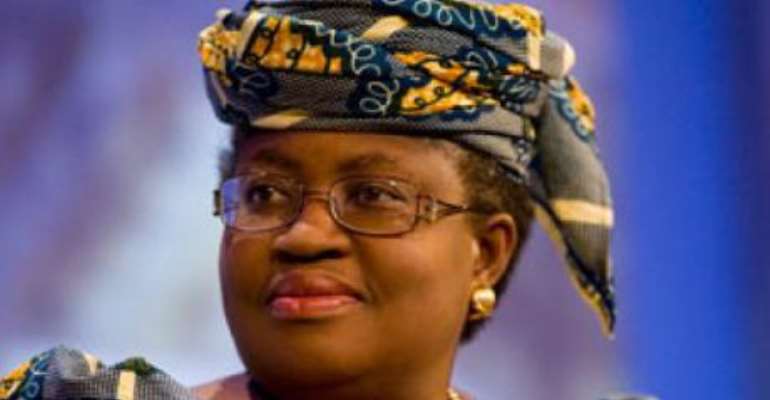Missing $20bn: FG appoints PriceWaterHouse for forensic audit of NNPC

The Federal Government has appointed PriceWaterHouse to handle the forensic audit of the Nigerian National Petroleum Corporation (NNPC), the finance Minister, Dr. Okonjo Iweal, disc losed in Abuja on Thursday.
.
The minister said that the auditors have been mandated to carry out a detailed investigations on the activities of the Nigerian National Petroleum Corporation.
Okonjo-Iweala made this disclosure while speaking during a debate at the 24th edition of the World Economic Forum for Africa.
The forum with theme 'Forging inclusive growth, creating jobs' is being attended by over 1,500 delegates from about 80 countries.
According to her, the move followed the recent revelations by the suspended Governor of the Central Bank of Nigeria, Mr Lamido Sanusi that the sum of $20bn was not remitted to the federation account by the NNPC.
Sanusi had come under attacks following his letter to President Goodluck Jonathan that the sum of $49bn was not remitted to the federation account by the NNPC.
But following the controversy which the letter generated, a committee was set up to reconcile the account.
While the Minister of Finance, Dr Ngozi Okonjo-Iweala, who is a member of the committee had stated that the sum of $10.8bn is the amount unaccounted for, Sanusi recanted and said the unremitted fund was $12bn.
The governor, however, made another u-turn on the missing oil revenue at the National Assembly investigative committee when he said that the unaccounted revenue by the corporation was $20bn.
But Okonjo-Iweala while speaking at the forum said the exercise would be carried out within a period of 16 weeks under the supervision of the Office of the Auditor General of the Federation.
Speaking during the debate which came up shortly before the opening of the plenary session, the minister said that the forensic audit would help unravel all mystery surrounding the unaccounted $20bn.
Responding to a question by one of the panelists bothering on corruption and transparency, she said, “The issue of holding government to account, I don't think Nigerians are laying back. We need that transparency and we welcome it.
“The (suspended) CBN Governor raised issues on unaccounted amount from the federation account.
“We at the ministry of finance have for two years been reconciling these figures with the NNPC to know what they are supposed to remit to the federation account.
“Our feeling is that the only way is to have a forensic audit that would let Nigerians know the issue.
“There is a forensic audit that the government has approved and it is being done by PwC under the supervision of the Auditor General. They said they need 12 to 16 weeks to do that and all these would be clarified.”
On poverty and inclusive growth, Okonjo-Iweala said the nature of economic growth in the continent had not been inclusive enough adding that more needed to be done to change the quality of economic growth.
She said, “It is obvious that the quality of our growth is not good enough because we are rising with inequality and without creating jobs for our people.
“We are all growing but not creating jobs and we have been asking ourselves how do we change the quality of this growth and our rebasing has shown us where the potentials is.
“We need to get people to go into farming through agroprenuers where 750,000 youths would be encouraged to go into agriculture.
“Africans want decent jobs and we should admit that we have those at the bottom who can't get decent jobs so we need to create social safety nets to take care of this. We also need to look at building skills for our young people.”
The minister also revealed the federal government is working hard to address the issue of infrastructure noting that a Development Finance Institution would be unveiled before the end of this year.
“In Nigeria we have been doing long term development with short term money and this is why we don't have sustainable growth.
“But we are developing a development finance institutions that will commence by the end of this year and this will help us provide long term finance of up to ten years to address the developmental needs of the country,” she said.
